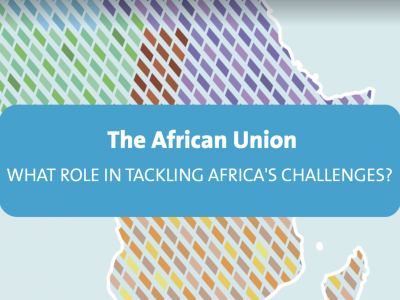
Waiting for EPAs: As if it matters – Paper for the ACP-EU Joint Parliamentary Assembly Committee on Economic Development, Finance and Trade
For Committee on Economic Development, Finance and Trade ACP-EU Joint Parliamentary Assembly
Introduction
At the opening ceremony of the negotiations of economic partnership agreements (EPAs) between the European Union (EU) and the African, Caribbean and Pacific (ACP) States, on 27 September 2002, the chairperson of the ACP Group arrived late, keeping hundreds of officials and diplomats, not least then EU Trade Commissioner Pascal Lamy, waiting for some long minutes. Ten years and four EU Trade Commissioners later, the EU still seems to be waiting for many ACP countries to come along.
Perhaps with few exceptions, the EPA agenda has not generated the enthusiasm for effective development partnership it was meant to stimulate. To date, only 37 ACP countries have concluded some type of agreement and only 25 have confirmed their commitment by signing an agreement, (15 of which are Caribbean). In parallel, negotiations towards final EPAs have been progressing only very slowly, when they have not been stalled. There is a new sense of optimism among some EPA negotiators, not least in the European Commission, which could mean that the conclusion of some EPAs is in sight. This would be a welcome outcome, provided it would reflect key interests of all parties. But many uncertainties, and the disappointing experience of protracted negotiations definitely call for caution.
Key dimensions of EPAs
The main rationale given for EPAs are threefold:
- a focus on using the agreements as ‘tools for development’,
- an emphasis within the agreements on enhancing regional integration through agreements that are negotiated at the regional level, and
- a trade regime that is securely compliant with World Trade Organisation (WTO) rules.
To comply with WTO requirement, simple free trade agreements liberalising substantially all trade over a reasonable period of time are basically sufficient. Agreement on the market access coverage remains however an issue in several EPA negotiations. A number of ACP countries did conclude interim EPAs only to preserve their access to the EU market as the Lomé-type/Cotonou unilateral trade regime expired at the end of 2007. The EPA effectively grants duty-and quota- free status of their exports. Other countries chose to fall back on alternative schemes under the EU Generalised System of Preferences (GSP), in the form of the Everything But Arms (EBA) initiative for Least Developed Countries (LDCs) – which also provides duty-free-quota-free market access, and the less attractive standard GSP for non-LDCs - which is indeed less advantageous than an EPA, but does not require any liberalisation on the their part.



